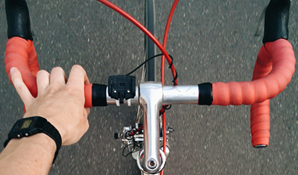Disability insurance provides you with financial compensation if you are disabled by an accident or illness and unable to work. It covers more than just serious illnesses and helps you replace at least part of your income when you are at your most vulnerable.
Depending on the terms of your disability cover, in the event of you becoming permanently disabled you will either be paid out a fixed amount of your choice (called the sum assured), or you will get a percentage (say 70 percent) of your monthly salary until you retire or for the rest of your life.
What is disability insurance?
There are two broad categories of disablement insurance:
Occupation-based disablement - this product pays out a lump sum if you become totally and permanently unable to perform the normal tasks required of your usual occupation; and where you cannot perform any other work that you might be able to, given your level of education, knowledge, training or experience. The benefit is paid whether due to illness or injury.
Event-based disability (sometimes known as ‘personal accident cover’) - this product pays a percentage of the sum assured for particular disability according to set criteria described in the policy. It would include injuries such as losing your sight, hearing, having an arm or leg amputated, becoming wheelchair bound and other incapacitating conditions.
If you choose cover that pays out a lump sum, it is important to note that the amount of cover you buy is a fixed total amount, and not an amount paid for every claim. This means any claim paid out reduces the amount available for future claim events. Once a cumulative amount of 100 percent of the total sum assured has been paid out, no further pay-outs for this benefit will be considered and cover will cease.
For example, John selects a R250 000 sum assured disablement policy for event-based disablement. In an accident, John loses a limb. A 50% pay-out is made and he receives R125 000. The remaining R125 000 is still available to John for future claims. Once this is paid out, cover will cease as the policy will be paid up.
What disability won’t cover is compensation if you are injured on the job - that's workers' compensation. It also won’t cover medical bills, which are covered by your medical scheme or dread disease cover.
Pre-existing conditions and claim rejections
Most policies have a clause that prevents you from obtaining insurance cover for any condition that you were treated for or that you knew about or should have known about for two years prior to the effective date of the policy. This is known as a pre-existing condition and any such condition not disclosed to the insurance company will most likely result in a claim for the condition being rejected. It bears repeating that when you take out an insurance policy, the responsibility lies with you to provide the insurer with all the necessary information, so that the company can correctly assess and price your risk.
When filling out a disability insurance application form it is best to explain any and all pre-existing conditions, in particular any medicine you are taking which could later be taken as a ‘red flag’ for a condition. It may still be possible to get a policy in the case of a pre-existing condition, but you could be asked to pay a higher premium– this is known as ‘loadings’ added to your premium.
Questions you need to ask about disability cover before you buy
- What can I afford? You can take out as much cover as you like (1Life for instance, offers cover ranging from R50,000 to R10 million), so you need to assess your own specific needs. 1Life has a call centre-consultant who can assist you with a needs analysis, and you may find other underwriters have a similar service. A needs-analysis reviews your expenses such as mortgage, car payment, debts, savings and retirement to calculate what you would need in the event of a disability, and what you can afford.
- Exactly what cover am I getting? Make sure you know the policy’s definition of disabled, as the definition may vary among underwriters. Disability by its nature can be complex, covering a multitude of ailments and injuries to individual body parts. Ask for an explanation of the fine print and make sure you understand what is being covered, and how it relates to your ability to perform your occupation.
- Is there a waiting period before cover commences or a pay-out is made?
- What is the insurer’s track record for paying claims? Research the insurer on Hello Peter and check their Facebook page. Ask friends and family for their opinion on providers as well.
- Am I getting the best price? Get comparative quotes from at least three different insurers – rates can fluctuate from insurer to insurer and you may be surprised at the difference. While it is important to be aware of the cost of cover, price is not the only consideration. Look at the benefits you are getting for that premium and remember that cheaper is not always better!
Lastly, remember to buy your cover when you are young and healthy! It might seem unnecessary, but you might not be able to get cover once you already have an existing condition and the longer you wait the greater the chance of having your premiums loaded.
Frequently asked questions
Disability insurance provides financial compensation if you are disabled due to an accident or illness and unable to work. It helps replace a portion of your income during times of vulnerability.
There are two types of disability insurance: occupation-based disability and event-based disability. Occupation-based disability pays a lump sum if you become totally and permanently unable to perform your usual tasks and cannot do any other work given your education, knowledge, training, or experience. Event-based disability pays a percentage of the sum assured for specific disabilities, such as losing a limb or becoming wheelchair-bound.
Occupation-based disability insurance pays out a lump sum if you become permanently unable to perform your normal tasks and can't work in any other suitable occupation based on your qualifications. This benefit is paid for both illness and injury.
Event-based disability insurance pays a percentage of the sum assured for specific disabilities mentioned in the policy. These disabilities may include loss of sight, hearing, limb amputation, or other incapacitating conditions.
If you opt for disability cover that pays out a lump sum, the amount you purchase is a fixed total amount and not per claim. Each claim payout will reduce the available amount for future claims. Once 100 percent of the total sum assured is paid out, no further payouts will be considered, and the cover will cease.
Disability insurance does not cover injuries sustained at work, as that is covered by workers' compensation. It also does not cover medical bills, which are typically handled by medical schemes or dread disease cover.
Yes, most policies have a pre-existing condition clause. If you have any conditions that were treated or known about within two years before the policy's effective date and you didn't disclose them, your claim for those conditions may be rejected.
Yes, it's crucial to provide all necessary information, including any pre-existing conditions, when applying for disability insurance. Even if you have a pre-existing condition, you may still get coverage, albeit with higher premiums.




